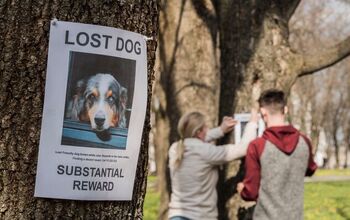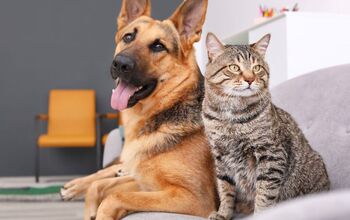The Deadly Consequences of Compassion Fatigue for Animal Care Workers

If you have ever set foot in an animal shelter you may have been immediately overwhelmed with a sense of compassion for the dozens of homeless animals staring out of their pens at you. A single instance of this experience is heart-wrenching enough, so imagine how animal caregivers feel as they face these situations each and every day. Compassion fatigue is very real and very serious – keep reading to learn more and to find out what you can do to help.
What is Compassion Fatigue?
According to Charles Figely, Ph.D., the director of the Florida State University Traumatology Institute, compassion fatigue is, “emotional exhaustion caused by the stress of caring for traumatized or suffering animals or people”. People who volunteer or work at animal shelters often do so out of the desire to help animals in need but many of them do not realize the deep-seated effects of constantly giving not just their time, but their emotions a well.
Related: How To Help Dog Shelters When You Can’t Adopt
Compassion fatigue can manifest in a variety of different ways, but many of the initial symptoms are emotional in nature – feelings of depression or being stuck in the job, sudden outbursts of anger, becoming cynical or hardened, having nightmares or flashbacks, and rapid fluctuations in mood and emotions. It is also important to realize that compassion fatigue can cause some physical symptoms as well – things like physical exhaustion or illness, frequent health problems, difficulty sleeping, substance abuse, and even suicide. (This condition came to light in September 2014, when 48-year-old veterinary behaviorist and best-selling author Dr. Sophia Yin died of suicide.)
How Can You Protect Yourself and Others?
Working with animals in need on a daily basis is by no means an easy job. In fact, it is often a thankless job that requires a great deal more time and effort than many people imagine. The more deeply involved you become, the more you may find that you become isolated from your friends and family, you may even develop a negative attitude or fall into a state of depression.
Related: 8 Amazing Companies You Never Knew Helped Animals
Many people experiencing compassion fatigue keep their feelings bottled up inside but one of the best things you can do is to talk about your experiences – to release some of that emotional stress. If you know someone suffering from compassion fatigue you can help them by lending an ear, encouraging them to express themselves and to share their feelings instead of bottling them up.
Another thing that you may find helpful if you or a loved one is suffering from compassion fatigue is to brainstorm ways to take action. If you work in an animal shelter with hundreds of homeless and abandoned animals every day it is easy to become cynical and to feel like the problem is large and insurmountable.
If you take time to think about it, it’s possible to come up with some solutions for simple problems or things you can do to make a difference. It is also incredibly important that you dedicate enough time to taking care of yourself. If you are constantly giving yourself for others but take no time for yourself, burn out is inevitable.
It takes a special kind of person to work with animals in need, especially as a full-time job. If you or a loved one is an animal caregiver, as hard as it is to face, you cannot save all the animals that you come into contact with. But always remember that YOU ARE making a difference – never underestimate how important it is to save one life.

Kate Barrington is the loving owner of two cats (Bagel and Munchkin) and a noisy herd of guinea pigs. Having grown up with golden retrievers, Kate has a great deal of experience with dogs but labels herself a lover of all pets. Having received a Bachelor's degree in English, Kate has combined her love for pets and her passion for writing to create her own freelance writing business, specializing in the pet niche.
More by Kate Barrington























